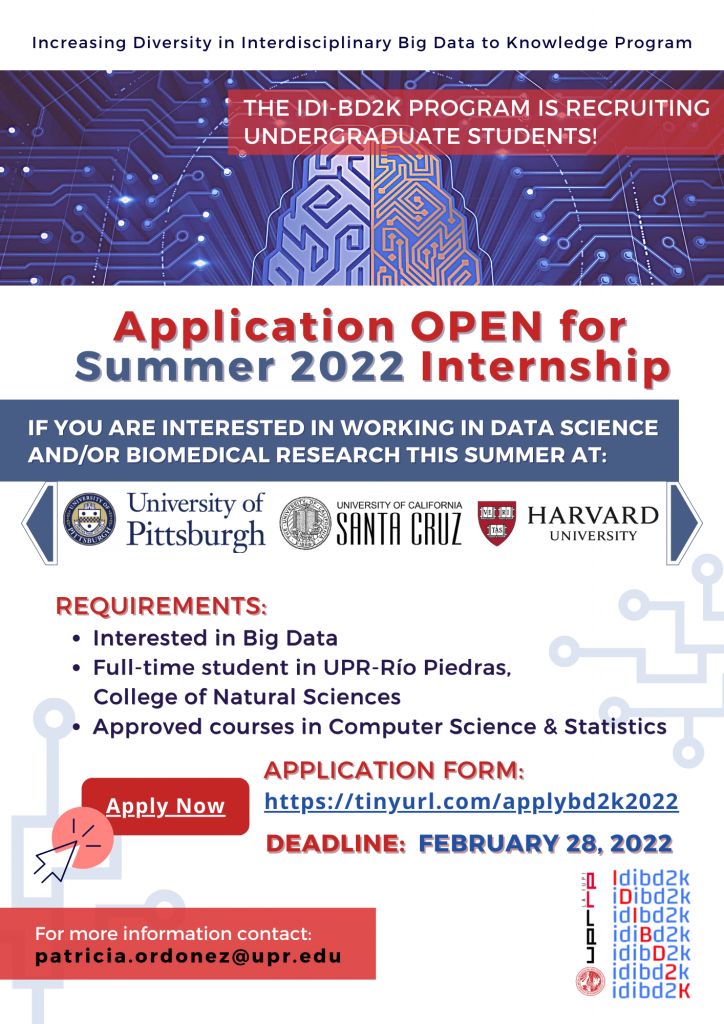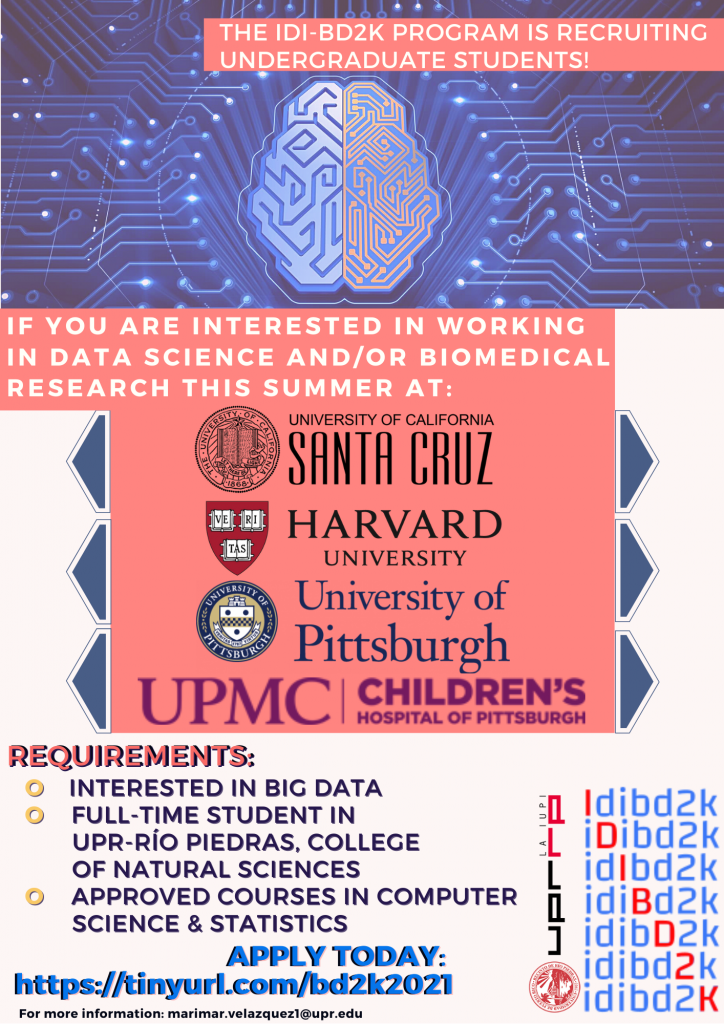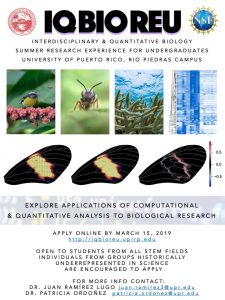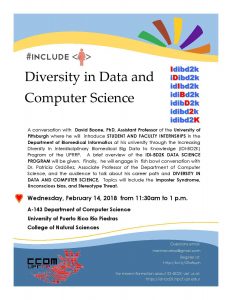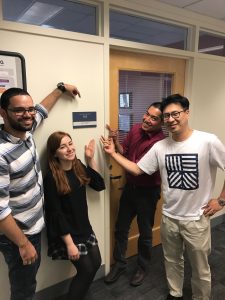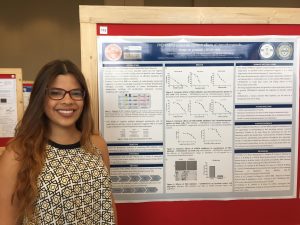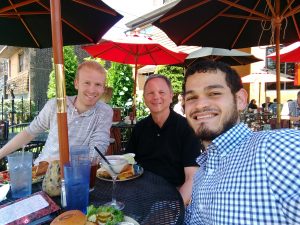C O N V O C A T O R I A A B I E R T A 📢
El programa Increasing Diversity in Interdisciplinary Big Data to Knowlege (IDI-BD2K) desea anunciar que ha abierto la convocatoria para participar en un internado de verano en una de las instituciones adscritas: University of California, Santa Cruz (UCSC), University of Pittsburgh (UPitt) y Harvard University
Requisitos:
Estudiante subgraduado/a a tiempo completo en la UPR-Río Piedras.
Interés en trabajar en ciencia de datos y/o realizar investigación biomédica.
Cursos aprobados en Ciencia de Cómputos y Estadísticas.
Completar la solicitud en línea en todas sus partes.
Proveer dos (2) cartas de recomendación y transcripción de crédito no oficial.
Para solicitar, favor de completar la solicitud en línea: https://tinyurl.com/applybd2k2022
Fecha límite: 28 de febrero de 2022
